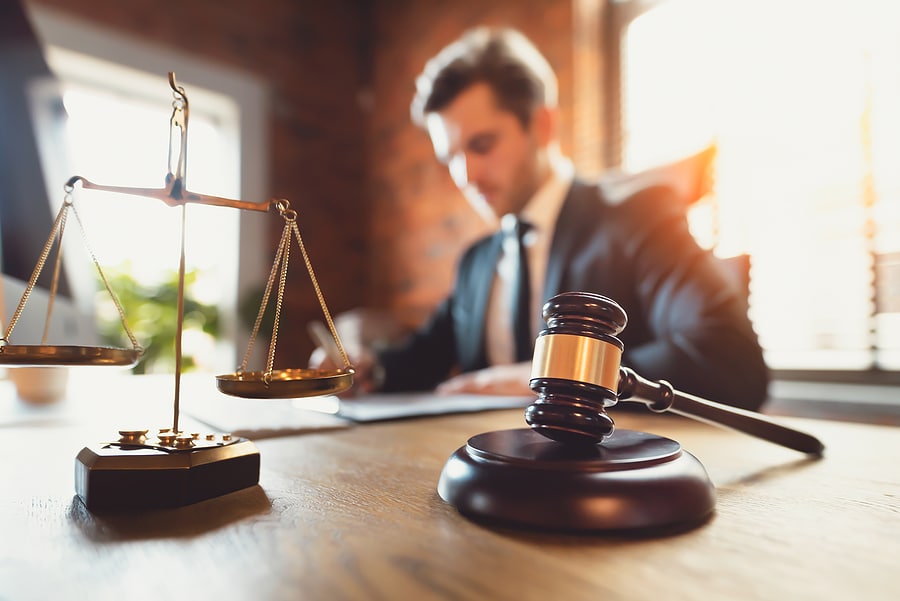In criminal cases, defendants must make crucial decisions with the help of their attorney at various stages of the process. There is no more important decision that you will make than whether to go to trial. If you lose at trial, you can face a more serious jail sentence than if you accepted a plea deal. Nonetheless, it may make sense to go to trial, even if you have done some (or all) of what the prosecutor alleges. Your attorney will give you the best advice about how to proceed in your case.

You Could Defeat the Most Serious Charges Against You
The word “guilty” can mean many things. In some cases, the defendants may be guilty of something, but the prosecutor has overcharged the crime. The defendant cannot plead guilty because they would be over-punished for what they really did. A trial may be necessary to fight some of the more serious charges. If not, the defendant might be facing a much longer jail sentence than necessary.
The judge may dismiss some of the more serious charges when the prosecution obviously does not have the proof for them. Alternatively, the prosecutor may drop some of the charges as trial approaches if they realize that they will not win.
In addition, the prosecutor may be more willing to make a more favorable deal the closer your case gets to trial. Just like you may not want to go to trial, the prosecutor may not want to either. Depending on what the prosecutor thinks of the strength of their case, you may have the most leverage on the eve of trial, which may be when you get your best deal.
You Are Not Guilty If Your Rights Were Violated
Even if you committed the crime that you were charged with, your rights might have been violated. Prosecutors may have illegally questioned you or seized evidence that they did not have a legal right to take. In that case, prosecutors cannot use your responses or any illegally seized evidence to convict you. In that case, it makes sense to make prosecutors go to court once you can suppress any illegally obtained evidence. They may not have enough to convict you. If law enforcement violates your rights, it can mean that you are not truly guilty within the fullest sense of the word.
Taking your case to trial will preserve your ability to appeal if there were mistakes or violations of your legal rights. If you plead guilty, you will lose the right to challenge your conviction. An appeal can focus on errors that the judge made by allowing certain evidence into your trial or by not dismissing your charges in the face of obvious violations of your rights.
The Prosecutor Is the One Who Has to Prove Your Guilt
Going to trial will force a prosecutor to work to prove any guilt. That is your right as a criminal defendant. All the evidence and witnesses against you must be presented in open court, where you will have a right to cast doubt on the evidence and examine the witnesses. There may be some holes in the case against you that you can expose.
Further, going to trial allows you to get a sense of the case that the prosecution will make against you. They have the legal obligation to turn over evidence that they will use at trial, allowing you to see it beforehand. Your attorney can prepare your case and focus on how they may challenge and attack this evidence in court. If there is anything about the prosecution’s case that does not add up, your attorney can exploit the weaknesses in court.
You Are Only Guilty If Your Conduct Meets All the Elements of the Crime
In addition, even if you think that you are guilty, you may not really be guilty within the meaning of the law. Each charged crime has individual elements that the prosecutor must prove beyond a reasonable doubt. If they cannot prove each element, then you are not really guilty. You only reach a conclusion of guilt after the jury has had a chance to hear your case and reach their own conclusion about what you did or did not do. The only true facts in the case are the ones that the prosecutor can prove. If the prosecutor cannot prove the facts, it is as if they did not happen as far as the jury is concerned.
Speak With an Attorney Before You Make Any Decisions
Before you reach any conclusion that you really are guilty, you should discuss your case with an experienced criminal defense attorney. They can investigate what happened and explain your legal options. You may be jumping to conclusions about your perception of your own guilt. You may actually be not guilty because the prosecution does not have the evidence necessary to prove your case beyond a reasonable doubt. Talk to an attorney before you decide what to do.
There may be valid reasons to go to trial no matter what in your case. It is all about getting the best possible legal outcome in your case. There may be different ways to achieve that result. However, you should consider plea deals offered by the prosecutor as a means of resolving your case. Do not rule anything out.
Call an Appleton Criminal Defense Attorney Today
In a criminal defense case, there are decisions that you should not be making on your own. The stakes are too high for you to be operating without the fullest possible knowledge. The attorneys at Hogan Eickhoff can counsel you after learning the facts of your case. We will tailor our advice to your own specific situation and circumstances. To schedule your free initial consultation, you can message us online or call us today at (920) 450-9800. You may have more options than you think, even when your case appears hopeless.
